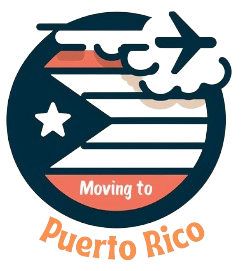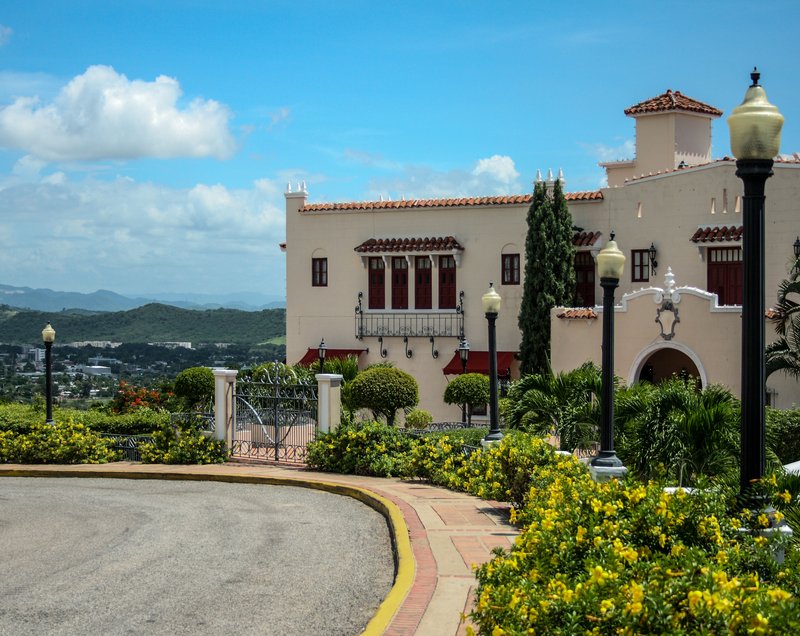For many, the dream of buying a home in Puerto Rico paints a picture of sandy beaches, sapphire waters, and a laid-back island lifestyle. However, diving into the real estate market on this tropical paradise can be daunting.
From navigating legal documentation to understanding financing options, potential homeowners face numerous challenges when considering making their Caribbean dream home a reality.
Interestingly, while Puerto Rico operates under its own unique set of rules and regulations for property purchases, Americans will find comfort in knowing that they don’t need international loans to buy on the island.
This blog serves as your compass through the complexities of buying a home in Puerto Rico. It’s filled with actionable insights tailored to streamline your purchasing process. Continue reading for an expert guide that illuminates every step towards securing your slice of Caribbean heaven.
Key Takeaways
- You do not need a passport to travel to Puerto Rico if you are a U.S. citizen or permanent resident; just bring your photo ID.
- Act 22 offers big tax breaks for new residents of Puerto Rico, like paying no tax on some types of income.
- Always have a professional look at the home before you buy it. They can tell if there are hidden problems.
- It’s smart to talk with local banks or lenders in Puerto Rico about money to buy your home because they know the rules.
- Hiring an agent who knows all about homes in Puerto Rico will help you make good choices and find the best place for you.
Essential Tips for Buying a Home in Puerto Rico

Obtain funding through local lenders or banks, research various locations to find the best fit for your needs, hire a trusted real estate agent familiar with the Puerto Rican market, embark on house hunting expeditions to explore potential properties, and make a competitive offer aligned with current property values.
Obtain funding
Before house hunting in Puerto Rico, getting the money ready is key. You need to show you can pay for a home. A good first step is to get pre-qualified for a loan. This means talking to a bank or lender and giving them your financial info.
They check your details and tell you how much they might lend you.
Many people also use their U.S. property to help buy in Puerto Rico. They take out a home-equity loan at low interest rates, sometimes under 4%, and then move that cash over to purchase Puerto Rican real estate.
Remember, if you’re looking for a mortgage on the island, work with local licensed lenders who know Puerto Rico’s rules well. It helps to talk with lenders who have different options and can work with several wholesale lenders too.
Research locations
Researching locations is key to finding the right home in Puerto Rico. The island offers a variety of settings, from bustling cities to quiet beach towns. Think about what setting suits your lifestyle best.
Do you want to wake up to ocean views or be close to nightlife and shopping? Use resources like Clasificados Online for up-to-date listings in different areas.
Look at factors like safety, schools, and healthcare facilities if those are important for you. Consider also the distance from work or attractions. Every part of Puerto Rico has its charm, so it’s worth taking the time to explore different communities before deciding.
After checking out various places, you’ll be ready to hire a real estate agent who can help with your search.
Hire a real estate agent
Get a local real estate agent when you want to buy a home in Puerto Rico. They know the market well and can find houses that aren’t listed online. A good agent helps you make smart choices and guides you through the buying process.
They’ll talk about locations, prices, and more with you.
Finding an agent means they do the hard work while you focus on what your dream home looks like. With their expertise, they will lead you to your next step: house hunting.
House hunting
Start by browsing Clasificados Online, the go-to platform for finding available properties in Puerto Rico. This site works like Craigslist and can help you discover a range of options including beach condos, residential homes, or free land opportunities.
Look for real estate agents who specialize in the areas that interest you and can guide you through the process. Consider reaching out to local blogs or resources for insights into different neighborhoods and tips on navigating Puerto Rico’s property market.
As a prospective homebuyer in Puerto Rico, remember that hiring the right help and locating a property are essential steps in this exciting journey. Once equipped with valuable insights from real estate blogs and guidance from local experts, start exploring properties listed on Clasificados Online to find your dream home in Puerto Rico.
Make an offer
Consider your budget and discuss financing options with a local lender. Research the property market to determine a reasonable offer. Engage in negotiations, considering commission structures unique to Puerto Rico.
Ensure the offer includes essential contingencies, and seek legal guidance before finalizing any agreements. Understanding important factors specific to Puerto Rico is crucial for successfully making an offer on a property in this area.
Understand the local commission structures for real estate transactions, which differ from those in the United States. Factor these differences into your budget when determining how much you can afford to offer on a property.
Legal and Financial Considerations

Considerations when buying a home in Puerto Rico go beyond just finding the perfect property. Understanding property management and fees, inspections, financing options, and potential tax breaks are essential for a smooth transaction.
Property management and fees
When purchasing property in Puerto Rico, it’s essential to consider the costs associated with property management and fees. Unlike in some states within the United States, real estate transactions in Puerto Rico do not typically involve title insurance or escrow services.
This means that buyers should be prepared for direct involvement in coordinating property inspections, appraisals, and legal documentation. Additionally, commission rates for sellers often vary between 2-4%, so it’s crucial to factor this into your budget when considering a purchase.
Understanding the unique legal and financial aspects of property management and fees in Puerto Rico is vital to making an informed decision about buying a home on the island. Be sure to work closely with a reputable real estate agent or lawyer who can guide you through these processes and help clarify any questions you may have regarding the associated costs involved.
Inspections
Before finalizing the purchase of a property in Puerto Rico, it’s important to consider home inspections, even though they’re not legally required. Conducting a thorough inspection can reveal potential issues with the property that may not be immediately apparent.
Many buyers find it beneficial to hire professional inspectors who are well-versed in identifying both existing and potential problems within residential properties.
A comprehensive home inspection can provide valuable insights into the condition of the property and help uncover any hidden concerns. Faulty inspections or issues with the title of the property are common concerns when buying real estate in Puerto Rico, making diligent inspections an essential step in ensuring a sound investment.
Financing options
Consider mortgage options if you plan to buy a home in Puerto Rico. Some lenders like Banco Popular de Puerto Rico, Oriental Bank, and Sunwest Mortgage offer financing. For those looking for government-backed loans, VA and USDA options can provide 100% financing without a down payment.
Additionally, consider seeking guidance from PRelocate’s real estate team who can assist with the mortgage process and share insights on home loans tailored to purchasing property in Puerto Rico.
Remember that FHA loans require a 3.5% down payment when buying a house in Puerto Rico. Researching these options will help determine the best fit for your specific homeownership needs.
Tax breaks
If you’re thinking of buying a home in Puerto Rico, it’s essential to consider the tax breaks that come with it. U.S. citizens who become bona fide residents of Puerto Rico can benefit from Act 60 tax incentives, including property tax exemption and capital gains tax exemption.
This means that by becoming a resident, you could avoid U.S. federal income tax on Puerto Rico source income and enjoy significant financial advantages as part of your move. It’s worth delving into these benefits further when considering purchasing property on the island.
Closing a Transaction
Once the offer has been accepted, the next steps involve home inspections, obtaining homeowners insurance, and finalizing the sale to ensure a smooth and successful transaction. If you want to learn more about these crucial steps in buying a home in Puerto Rico, keep reading for valuable insights and tips.
Home inspections and appraisals
Home inspections in Puerto Rico provide detailed information about a property’s potential issues.
- Home inspections cover a wide range of areas, including the structure, electrical systems, and plumbing.
- Understanding the purpose and process of home inspections is crucial for homebuyers in Puerto Rico.
- Appraisals help determine fair market value and are often required by lenders for mortgage approval.
- It’s important to hire qualified professionals to conduct thorough home inspections and appraisals.
- Home inspections and appraisals help buyers make informed decisions and negotiate repairs or pricing if needed.
- Buyers should carefully review inspection reports and appraisals to understand a property’s condition and value accurately.
- It’s advisable to attend both the inspection and appraisal to ask questions and gain insights firsthand.
- Getting multiple quotes for inspections and appraisals can help ensure reasonable costs while maintaining quality standards.
- Homebuyers should consider potential repair costs disclosed in home inspection reports when making purchase offers.
- The results of these evaluations can significantly influence the final decision – making process for purchasing a home in Puerto Rico.
Obtaining homeowners insurance
After conducting home inspections and appraisals, the next important step is obtaining homeowners insurance. Here’s a guide to help you understand how to secure this essential protection for your new property:
- Research and Compare: Start by researching different homeowners insurance providers in Puerto Rico. Compare their coverage options, premiums, deductibles, and customer reviews to find the best fit for your needs.
- Understand Coverage: Familiarize yourself with the specific coverage offered in Puerto Rico. Ensure that the policy covers potential risks such as hurricanes, floods, and other natural disasters that are common in the region.
- Work with a Local Agent: Engage with a reputable local insurance agent who has expertise in the Puerto Rican market. They can provide valuable insights into the specific insurance requirements and regulations applicable to properties in Puerto Rico.
- Assess Additional Coverages: Consider additional coverages such as windstorm insurance or flood insurance, which may be necessary based on your property’s location and vulnerability to environmental risks.
- Verify Title Requirements: Some lenders may require specific title endorsements as part of the homeowners insurance policy. Verify these requirements with your real estate attorney to ensure compliance.
- Review Policy Details: Thoroughly review the homeowners insurance policy documents before finalizing the purchase. Pay attention to details such as coverage limits, exclusions, claims process, and any additional riders or endorsements.
- Ensure Compliance with Act 22: If you’re relocating to Puerto Rico under Act 22 (the Individual Investors Act), ensure that your homeowners insurance complies with any residency or tax-related stipulations outlined in the act.
- Coordinate Closing Process: Work closely with your real estate attorney to coordinate the inclusion of homeowners insurance in the closing process. Verify that all necessary documentation is provided to complete this essential aspect of property ownership.
Finalizing the sale
After obtaining homeowners insurance, the final steps to buy a home in Puerto Rico involve completing the transaction. Here are the essential tasks you need to complete before finalizing the sale:
- Property Title Search and Verification: Before closing the deal, it’s crucial to conduct a thorough title search to ensure there are no liens or legal issues attached to the property. This step is essential for protecting your investment and ensuring a clear title transfer.
- Escrow and Closing Agent: Engage an escrow company or closing agent who will oversee the final stages of the transaction. They will coordinate with all parties involved, handle the funds, prepare necessary documents, and ensure a smooth closing process.
- Review Closing Documents: Carefully review all closing documents, including the settlement statement, mortgage documents (if applicable), and any other paperwork related to the property transfer. Seek guidance from a real estate attorney to ensure everything is in order.
- Final Walk-Through: Conduct a final walk-through of the property before closing to verify that everything is in good condition and that any agreed-upon repairs or changes have been made as per the contract.
- Settlement Meeting: Arrange a settlement meeting where all parties involved – buyers, sellers, real estate agents, attorneys, and possibly lenders – come together to finalize the sale. During this meeting, you will sign all necessary documents and pay any remaining closing costs.
- Transfer of Funds and Title: Once all documents are signed and funds are transferred as per the agreement, ownership of the property is officially transferred from the seller to you.
- Recording of Deed: After closing, it’s important to ensure that the deed is properly recorded with the appropriate government office to legalize your ownership of the property.
- Celebration! Congratulations on becoming a homeowner in Puerto Rico! Now it’s time to enjoy your new home and embrace this exciting chapter in your life.
Important Information about Puerto Rico
– Is Puerto Rico part of the United States?
– Do you need a passport to travel to Puerto Rico?
– What is Act 22?
– Risks and rewards of buying property in Puerto Rico
Is Puerto Rico part of the United States?
Yes, Puerto Rico is considered to be part of the United States but has its own distinct status as an “unincorporated territory.” This means that it is under the control of the U.S. government but remains separate from the mainland.
Understanding this unique status is crucial for anyone considering relocating or purchasing property in Puerto Rico, as it impacts various legal and financial aspects of homeownership.
If you’re interested in delving into real estate opportunities on the enchanting island of Puerto Rico, there are several essential considerations to keep in mind before making any decisions.
Do you need a passport to travel to Puerto Rico?
As Puerto Rico is a territory of the United States, U.S. citizens and permanent residents do not need a passport to travel there. Instead, a government-issued photo ID is sufficient for entry from mainland destinations.
However, non-U.S. citizens will require a passport for traveling to Puerto Rico. It’s important to note that starting in 2023, a valid driver’s license will be required as an acceptable form of identification for travel purposes to Puerto Rico.
When it comes to relocating or visiting Puerto Rico as a U.S. citizen or permanent resident, having this clarity on travel documentation can help ease the process and provide peace of mind when considering property investment or exploring the potential of homeownership in this vibrant Caribbean destination.
What is Act 22?
Before investing in Puerto Rico real estate, it’s vital to understand Act 22. Also known as the Individual Investors Act, this legislation aims to boost investment in Puerto Rico by offering lucrative tax incentives to bona fide residents.
High net worth individuals are the target under Act 22, with a promise of 0% tax on interest, dividends, rental, and short-term capital gains. Specifically designed to attract wealthy investors from outside sources and promote development in the country, Act 22 completely exempts new residents from Puerto Rican taxation on dividends, interest, and capital gains that accrue after becoming a resident of Puerto Rico.
Risks and rewards of buying property in Puerto Rico
Before deciding to buy property in Puerto Rico, it’s important to weigh the risks and rewards. On the positive side, Puerto Rico offers a lower cost of living and enticing tax benefits for homeowners.
However, potential drawbacks include unreliable property information and varying home prices. It’s crucial for prospective buyers to conduct thorough research and seek professional guidance to make well-informed decisions about purchasing real estate in Puerto Rico.
Moving forward, let’s delve into essential legal and financial considerations when buying property on this beautiful island.
Conclusion
In conclusion, buying a home in Puerto Rico involves essential tips and legal considerations. The process includes obtaining funding, researching locations, hiring an agent, house hunting, and making an offer.
Legal and financial aspects include property management fees, inspections, financing options, and potential tax breaks. Closing the transaction requires home inspections, appraisals, obtaining homeowners insurance, and finalizing the sale.
Understanding important information about Puerto Rico is crucial for making informed decisions about purchasing property in the area. Remember that with practical guidance and comprehensive market insights provided in this guide can empower you to make sound decisions when purchasing a home in Puerto Rico.
FAQs
1. How do I start buying a home in Puerto Rico?
To begin, learn about the property market insights and legal process of buying a home in Puerto Rico, then find real estate listings for residential properties that match what you want.
2. What costs should I expect when purchasing property in Puerto Rico?
When buying real estate in Puerto Rico, prepare for costs like taxes, fees for legal paperwork, and possibly mortgage payments if you need a loan.
3. Can I buy a vacation home in Puerto Rico?
Yes! Many people buy vacation homes in Puerto Rico. To do this smoothly, follow tips for purchasing property and maybe talk to experts on the real estate purchase process there.
4. Is it complicated to buy real estate in Puerto Rico?
The guide to buying real estate in Puerto Rico will help make sense of things like homeownership laws and mortgage options so that the property buying process can be easier to handle.
5. Why should I consider moving to or investing in property in Puerto Rico?
Puerto Rican properties are popular because of the island’s beauty and lifestyle plus reasonable cost of living; making it attractive both as a new home or investment opportunity.

Pablo Sierra is the writer and creator of the blog Moving to Puerto Rico, where he assists others in relocating to the island by providing advice and sharing his first-hand experiences.
Originally from Arecibo, Puerto Rico, Pablo has spent most of his life living on the island. His passion for the vibrant Puerto Rican lifestyle and helping newcomers adjust inspired him to start Moving to Puerto Rico. On the blog, Pablo taps into his insider-knowledge as a native to offer tips on the best neighborhoods, navigating the local culture, finding the top beaches and trails, and more.
To learn more about Pablo and connect with him on all things related to moving to and living in Puerto Rico, check out his website, www.movingtopuertorico.net.








